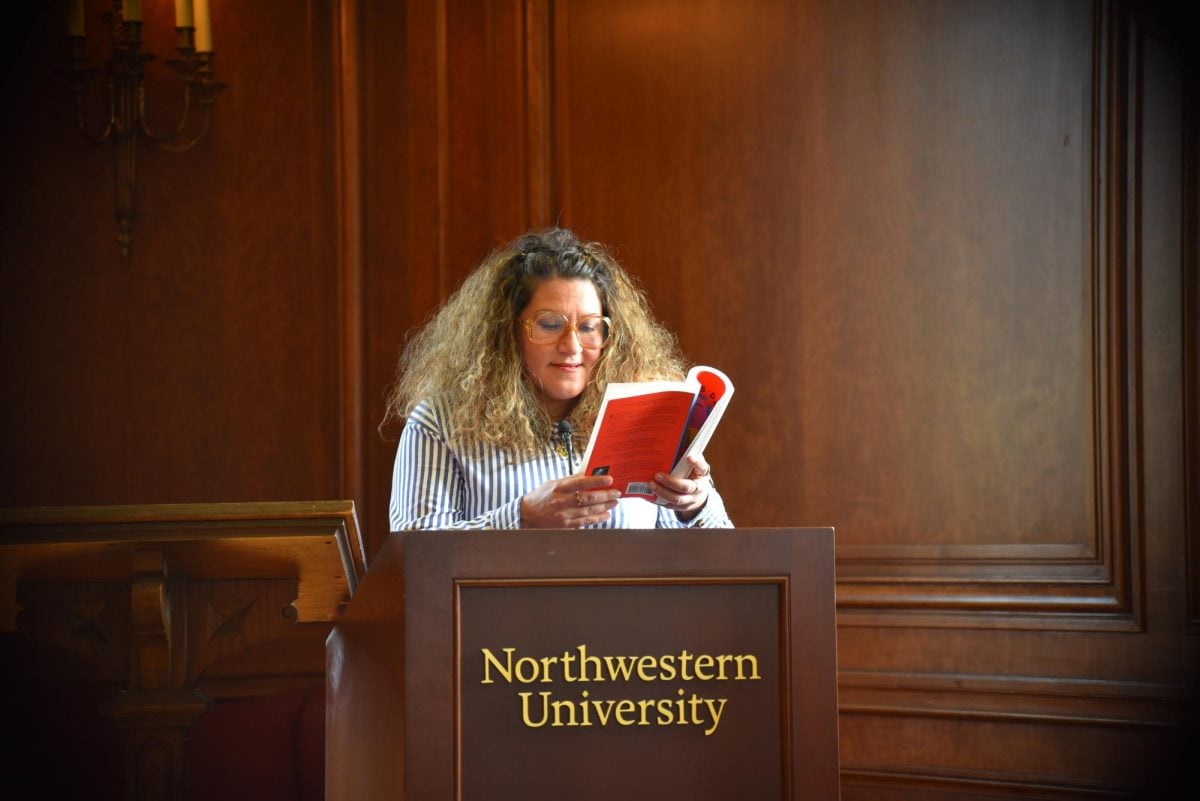New York Times bestselling author Xochitl Gonzalez talked about her new book, “Anita de Monte Laughs Last” and her award-winning novel, “Olga Dies Dreaming” at Harris Hall Monday afternoon.
Gonzalez highlighted many of the themes found in her books, including feminism, which she said is often defined in terms of individual status, profession and wealth.
However, she said she sees the Latine feminist movement as community based.
“(The characters are) sort of experiencing (that) being a woman is an embattlement with other women,” Gonzalez said. “When I think about Latina feminism, I tried to get to an evolution of rejecting that in the sense that there’s a battle over space.”
While Gonzalez did not set out to write a feminist book, she said she realized after visiting Europe last year that “Olga Dies Dreaming” had been consistently categorized as feminist literature in bookstores there.
“U.K. reviews were all about ‘this wild feminist book.’ In America, everything was about race and racial plausibility,” Gonzalez said. “I thought that was fascinating.”
Gonzalez also reflected on her experiences at Brown University, where she studied visual art. She said race and gender continue to be weaponized in public perception of college admissions.
Reflecting on the recent Supreme Court ruling on affirmative action, Gonzalez discussed the common feelings of isolation and ostracization that students of color feel at elite institutions.
“We’re living in a time of kind of quiet, white rage. And I think that there’s going to be a way to cut down people’s presence, no matter what,” Gonzalez said.
Weinberg freshman Sofia Castano, who attended the talk, said she enjoyed that Gonzalez incorporated her own experiences as a Latine woman into her writing.
“I really liked how she talked about her own experiences in college. It made it seem like (the book) was very connected to her own life,” Castano said.
SESP sophomore Anusha Kumar and McCormick junior Camila Solis both attended the talk after reading “Olga Dies Dreaming.”
Kumar said although she read the book almost two years ago, she recalled its discussions of family dynamics, careers and sociopolitical aspects through the perspective of a Latine woman.
“I think it was great that she was so candid,” Kumar said. “I feel like her voice really comes out in her writing.”
Solis said that she was an avid reader in middle and high school, but she never read books featuring women of color because the books were not easily accessible. Now, Solis said she makes an active effort to read stories featuring women of color, like Gonzalez’s book.
Solis said she also resonated with one of the character’s internal monologues in “Olga Dies Dreaming” surrounding the limitations placed on women of color within society.
“You can tell that the author really, really cares about uplifting other women of color, especially in this industry,” Solis said. “I feel like the work speaks for itself.”
Email: [email protected]
Related Stories:
— Authors Rachel Herzing and Justin Piché discuss abolition, new novel during Monday conversation
— EPL’s “All We Can Save” book group highlights intersectionality between feminism and climate change






